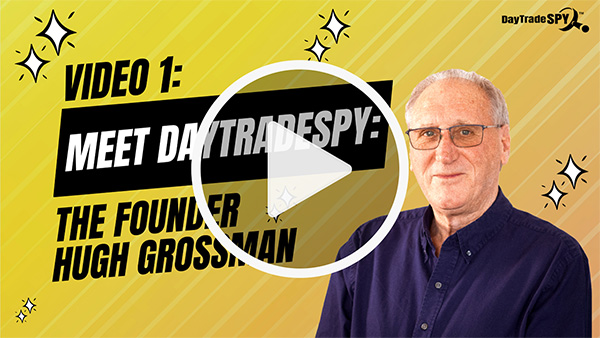Why They Don’t Teach This in School
“Hey Hugh, if what you’re teaching is legit, why would it not be taught in college?”
This is a question I get from time to time, and it deserves an appropriate response.
Colleges do not teach this material for the following reasons:
- They don’t know it, and because of the intense fluidity of the market and trading strategies, they could never keep up anyway.
- Anyone who knows this material is smarter than to bother waking up, showering, getting dressed, commuting to work, putting in a full day’s work and then doing it all over again the next day, the day after that and the day after that! In the end, the professor receives a paltry yearly sum of $97,657, according to Google. That works out to only about $400/day. On the options market, this can generally be achieved by the average novice trader before corporate America takes its first coffee break.
When people realize the potential of options trading, we often see life-changing and career-shifting moves. Lawyers, doctors, truckers, teachers and business owners have been known to shelve their respective careers and join the ranks of options traders. It’s not hard to understand why.
Here is an example. My first trade recently took me from $0.95 to $1.15 in nine minutes on the SPY $477 puts. Next up was the $478 calls from $0.80 to $1.00 in six minutes, followed by another run at the same calls for another $0.14 in 17 minutes. Finally, one last shot at the same $478 calls for another $0.16 in four minutes produced a total of $700 on 10 contracts per trade, done by 10:21 a.m., traded in front of a live audience.
The most I invested in any one trade was $960, with the average investment being only $888. I did not even break a sweat. That is more than the average college professor earns. These were real money and real trades. The irony is that I promised my doctor I would not place real trades so as to not raise my blood pressure. Sorry, I could not resist. In fact, I considered these trades to be just a fun diversion. While it was Jan. 19, it could have been any day.
The follow-up question I often hear is: “If you’re making money day trading SPY options, why wouldn’t you just trade and not bother with training?”
This is another good question that begs an answer for the doubting Thomases.
Why we bother training others when we could simply trade ourselves is simple: We love what we do. Ahren and I do not have to do this. Frankly, we chose to teach to assist others in making positive changes in their financial lives, enabling them to better their lot and even start providing for productive charitable work. Ahren and I have an insatiable need to want to help others. This purpose fills that void. We thrive on seeing others succeed and love to watch our Trading Room participants chime in with their gains. We love to hear their success stories, for example, of how the single parent nurse was able to earn enough to put her children through college. We are humbled at hearing about how a client’s trading funded his wife’s cancer treatments.
There are far too many stories to list, but know that the satisfaction we derive from hearing of others’ success cannot be measured. We cherish the daily testimonials espousing our methodology that land in our inbox. For that, thank you, all!
Ahren put it so eloquently: “As long as I have a breath in me, I want to help others learn how to trade and make consistent money. I hope that to be my legacy.”
I am little more brash when I say, “Don’t ask why we teach, just be thankful we do!”
As for you learning this material, that choice is yours. If you are already familiar with calls and puts, click here for details about our famous Trading Room. If you have never traded before, click here to register for our free Sunday Night Fireside Chat, Introduction to Trading at 8 p.m., ET.
Circling back to teaching this in college, I hope that one day, every university and community college will provide a mandatory basic course on making money in the stock market. Imagine the future of this country!
But I highly doubt that will ever happen. Instead, they will continue to teach archaic programs, leaving students unprepared for the real world.

